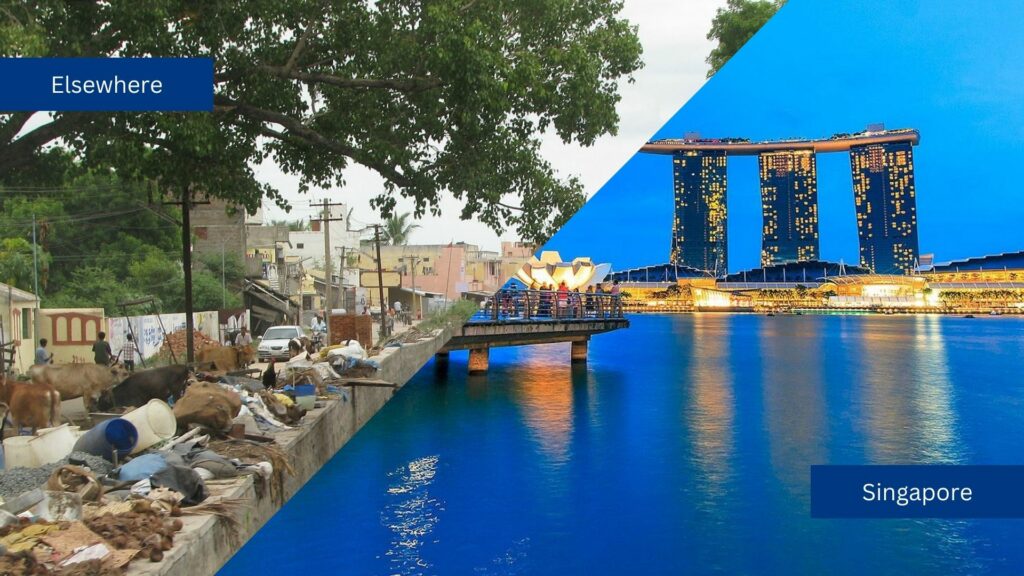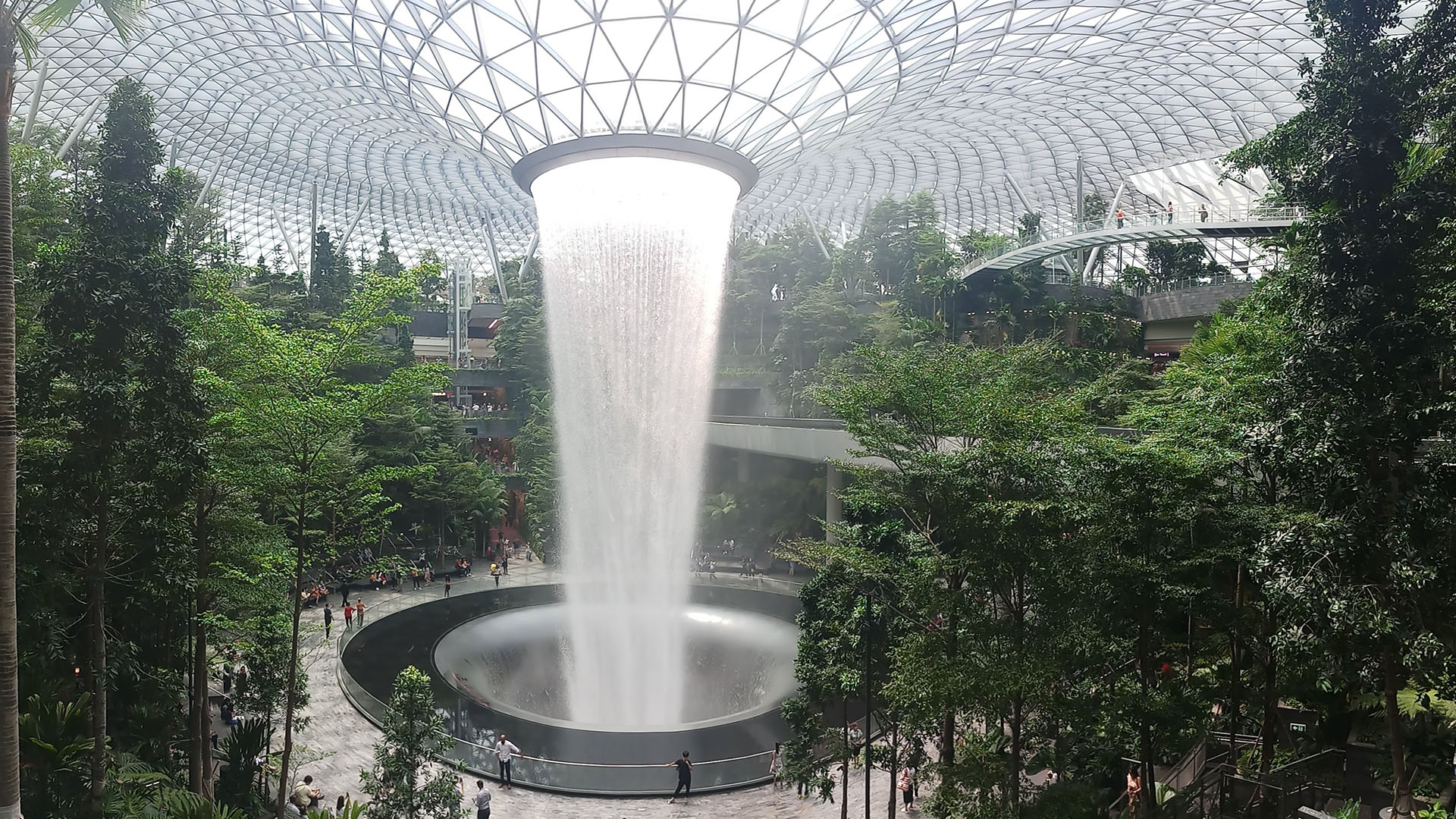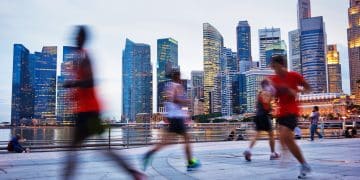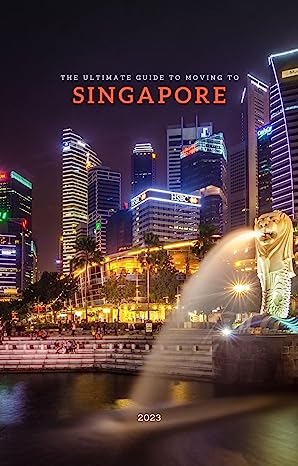Singapore, known for its immaculate streets and strict environmental policies, often raises the question: Is it the cleanest country in the world? This city-state has gained a reputation for its commitment to cleanliness, with the government strictly enforcing regulations and the community actively participating in maintaining the environment. As a result, Singapore has been voted the cleanest and greenest city in the world according to a Time Out Index survey, but how does it compare to other countries in global cleanliness rankings?
the claim that Singapore is the cleanest country in the world is a matter of debate, as there are other countries that also have impressive cleanliness records and initiatives.
In this article, we will explore Singapore’s reputation as a clean city-state, examine the factors that contribute to its cleanliness, and compare it to other countries that are also known for their environmental efforts.
Key Takeaways
- Singapore is recognized globally for its cleanliness and green initiatives.
- A combination of effective environmental policies, urban planning, and waste management systems contribute to the city-state’s success.
- Singapore provides a high quality of life through its commitment to public transport, green spaces, and environmental education.
Singapore Cleanliness
Singapore is renowned for its remarkable urban cleanliness, earning the reputation as one of the cleanest countries in the world. The nation’s commitment to maintaining clean streets and public spaces is driven by a combination of strict laws, effective waste management, and widespread public cleanliness awareness.
The clean streets of Singapore can be attributed to the government’s stringent regulations and hefty penalties for littering. Fines are imposed on offenders, and in some cases, individuals may even be required to participate in corrective work orders, picking up litter under public supervision. Such strict measures create a strong deterrent, encouraging residents and visitors to be more responsible with waste disposal.
Another contributing factor to Singapore’s cleanliness is the efficient handling of waste and effective sanitation systems in place. The country’s waste management infrastructure ensures proper collection, disposal, and recycling of waste products, minimising the impact on the environment. Advanced waste-to-energy plants also help convert waste into electricity, reducing the need for landfills and contributing to a cleaner, greener Singapore.
Public cleanliness awareness plays a significant role in maintaining the pristine appearance of Singapore. Educational programmes and campaigns are regularly conducted, emphasising the importance of a clean environment and good personal hygiene. This strong sense of civic responsibility empowers citizens to actively contribute to keeping their surroundings clean, further enhancing the overall cleanliness of the city.
Singapore’s impressive commitment to urban cleanliness is evident in every aspect of the city, from its clean streets to its comprehensive waste management systems. With ongoing efforts to improve public cleanliness awareness and the strict enforcement of anti-littering laws, Singapore continues to be a shining example of a clean and green urban paradise.
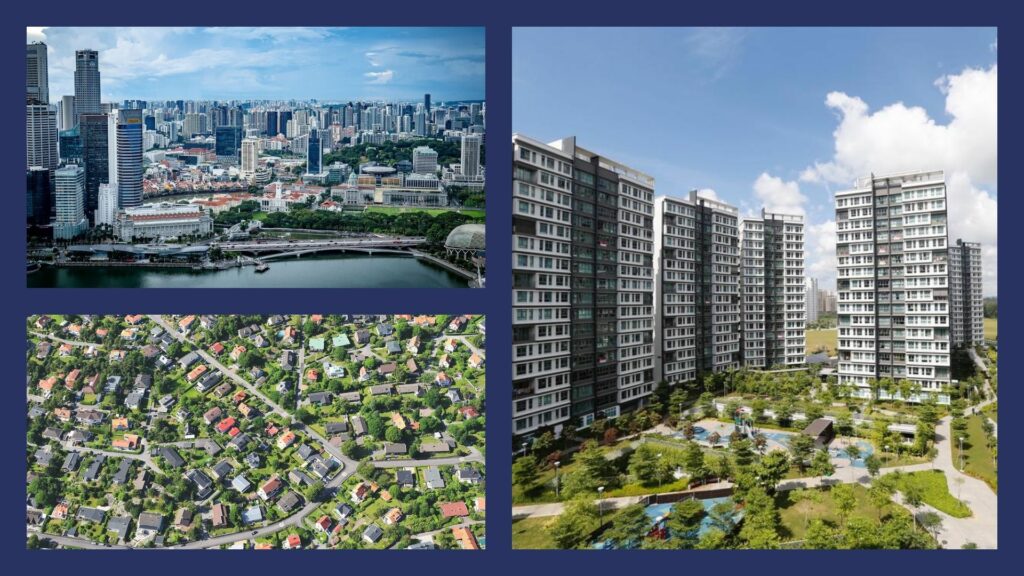
Global Cleanliness Rankings
When discussing global cleanliness, it is essential to consider both countries and cities. In terms of cleanest countries, the top positions are often occupied by European nations. According to the 2020 Environmental Performance Index (EPI), Denmark holds the top spot with a score of 82.5, followed by Luxembourg at 82.3, and Switzerland at 81.5. Other countries in the top 10 list include the United Kingdom, France, Austria, Finland, Sweden, and Norway.
On the other hand, the cleanest cities in the world tend to be a more diverse mix. A recent Time Out Index survey showed that 62 per cent of respondents voted Singapore as the world’s cleanest city. Known for its perfectly paved roads, manicured public parks, and strict littering laws, Singapore is an excellent example of urban cleanliness.
While Singapore is undoubtedly one of the cleanest cities globally, it is important to note that it is not the only contender. Other cities displaying remarkable cleanliness and green initiatives include Copenhagen, Denmark; Vienna, Austria; and Stockholm, Sweden. These cities often share some common features, such as efficient public transport systems, well-maintained public spaces, and waste management policies.
Environmental Policies and Initiatives in Singapore
Singapore Green Initiatives
Singapore has implemented various green initiatives to maintain its reputation as one of the cleanest countries globally. The Singapore Green Plan 2030 charts ambitious targets, strengthening the nation’s commitments under the UN’s 2030 Sustainable Development Agenda and the Paris Agreement. This plan is significant, as it positions Singapore to achieve its long-term net-zero emissions aspiration by 2050.
Singapore’s Eco-Friendly Policies
During the period between 2000 and 2010, Singapore saw a golden age in its environmental movement. Numerous environmental NGOs and activism initiatives were established, such as the Animal Concerns Research and Education Society, Waterways Watch, ECO Singapore, Vegetarian Society, Green Drinks, and Ground-Up Initiative. These organisations have been instrumental in promoting eco-friendly policies and raising environmental awareness among Singaporeans.
Singapore’s Clean Energy Initiatives
In pursuit of clean energy solutions, Singapore has been focusing on renewable resources and reducing dependence on non-renewable energy sources. Solar energy has been a primary focus, as it is an abundant resource in the nation’s tropical climate. The government supports the deployment of solar panels on rooftops and strives to achieve higher solar energy production targets. Efforts towards clean transport, such as electric vehicles, and enhancing energy efficiency through green building standards are also prominent.
Green Infrastructure in Singapore
Singapore’s green infrastructure, including parks, gardens, and urban greenery, contributes significantly to the country’s clean and green image. The city’s urban planning integrates nature conservation, providing residents with easy access to green spaces. Moreover, Singapore has been successful in implementing progressive waste management systems, like the Semakau Landfill, which is an offshore landfill that adopts advanced waste-treatment technologies. This combination of green infrastructure and sustainable waste management practices makes a significant impact on Singapore’s environmental achievements.
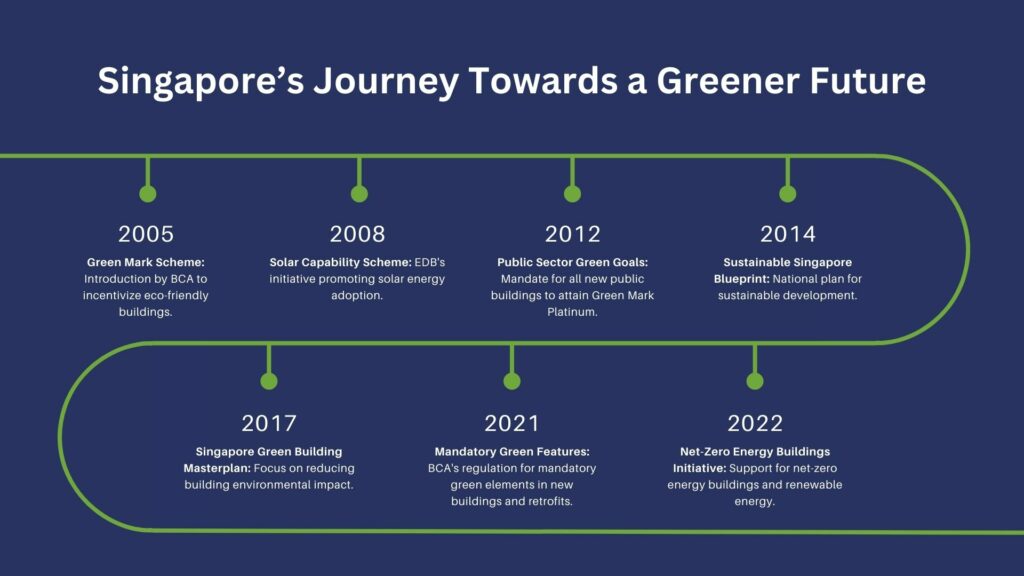
Urban Planning and Building in Singapore
Urban Planning in Singapore
Singapore’s urban planning has prioritised sustainable development, leading it to become one of the cleanest countries in the world. The city’s strategic planning initiatives, such as the Active, Beautiful, Clean Waters (ABC Waters) Program, have transformed the country’s water bodies and created green spaces within the urban landscape1. Singapore’s dedication to integrating nature within the urban environment has earned it the nickname “Garden City”2.
In addition to preserving green spaces, Singapore’s urban planning also focuses on reducing waste and promoting recycling through policies, such as mandatory recycling in residential premises and encouraging zero-waste initiatives. The city has also worked to improve public transport infrastructure and reduce private vehicle usage, minimising air pollution and promoting a sustainable mode of transportation.
Singapore’s Green Buildings
Singapore is committed to creating a more sustainable urban environment through the development of green buildings. One of the significant efforts in this regard is the Singapore Green Plan 20303. This initiative includes retrofitting older buildings with energy-efficient technology and promoting the construction of super low energy new developments.
Furthermore, Singapore has invested US$32 million in new green building technology, demonstrating the city’s commitment to becoming an eco-friendly city3. The Building and Construction Authority’s (BCA) Green Mark scheme is a key element in promoting environmentally friendly building practices. The scheme encourages the adoption of innovative green solutions in the construction and operation of buildings, ultimately minimising their environmental impact.
As a result, Singapore has established itself as a front-runner in green building design and construction. Its dedication to creating a cleaner and greener urban environment has not only improved the quality of life for its residents but has also positioned the city as an international leader in sustainability and eco-friendly solutions.
Footnotes
- How Singapore is Pioneering the Way to Creating a Greener Urban… ↩
- Singapore Aims to be the World’s Greenest City – National Geographic ↩
- How the Singapore Green Plan 2030 is shaping Asia’s most sustainable… ↩ ↩2
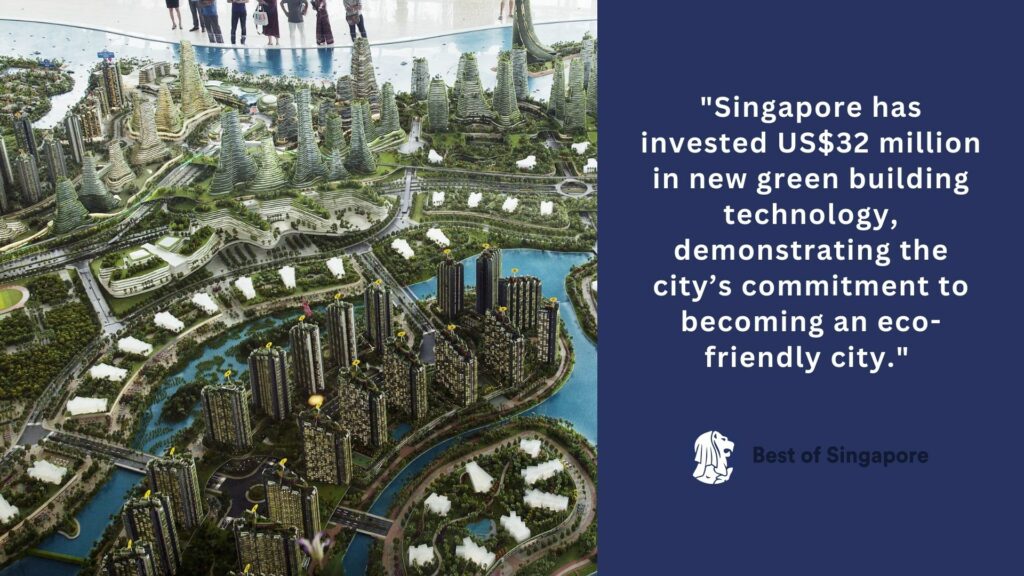
Sanitation and Waste Management in Singapore
Singapore Sanitation
Singapore is served by a modern sanitation system where all used water is collected through a network of sewers and directed to water reclamation plants. In the 1800s, the sewage collection and disposal system in Singapore relied on the use of night soil buckets, but the country has made significant progress in upgrading its sanitation infrastructure since then. This has contributed to Singapore’s image as one of the cleanest cities in the world.
Waste Management in Singapore
The management of solid waste is a critical aspect of Singapore’s pursuit of cleanliness. In 2018, the global generation of municipal solid waste was about 2.01 billion tonnes, with at least 33% of that not managed in an environmentally safe manner. In contrast, Singapore has implemented effective waste management strategies and practices, ensuring that waste is properly collected, transported, and disposed of in a sustainable manner.
Singapore’s Waste Reduction
Singapore has implemented various waste reduction initiatives to mitigate the generation of waste. By adopting the “reduce, reuse, and recycle” approach, the country continuously aims to minimise waste generation. Moreover, Singapore enforces strict regulations and guidelines for businesses and industries to responsibly manage their waste and prevent pollution.
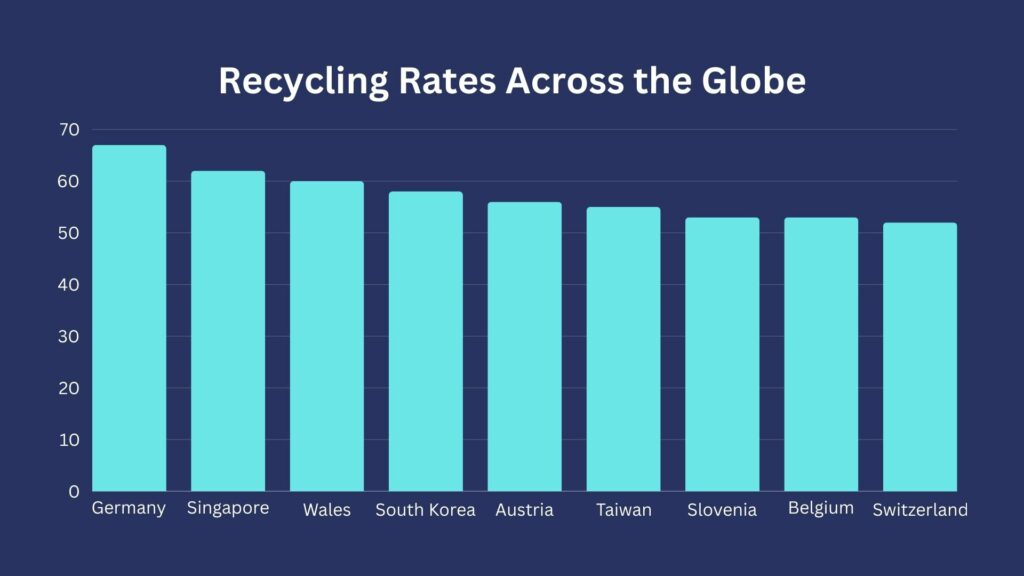
Recycling in Singapore
Recycling is an integral part of Singapore’s waste management strategy. The country has established a comprehensive recycling infrastructure that facilitates the collection, processing, and recycling of various waste materials, including paper, plastic, metal, and glass. Recycling efforts are supported by both public and private sectors, along with public awareness campaigns to encourage residents to adopt recycling habits.
Singapore’s Waste Treatment
Waste treatment in Singapore is carried out through a combination of incineration, landfill, and recycling facilities. Singapore’s waste treatment plants utilise advanced technology to ensure environmentally friendly treatment of waste. For instance, the Bedok NEWater plant has systems in place to turn sewage into clean, drinkable water, meeting 40% of Singapore’s water requirements. This approach not only reduces waste accumulation but also demonstrates the country’s commitment to resource conservation and sustainability.
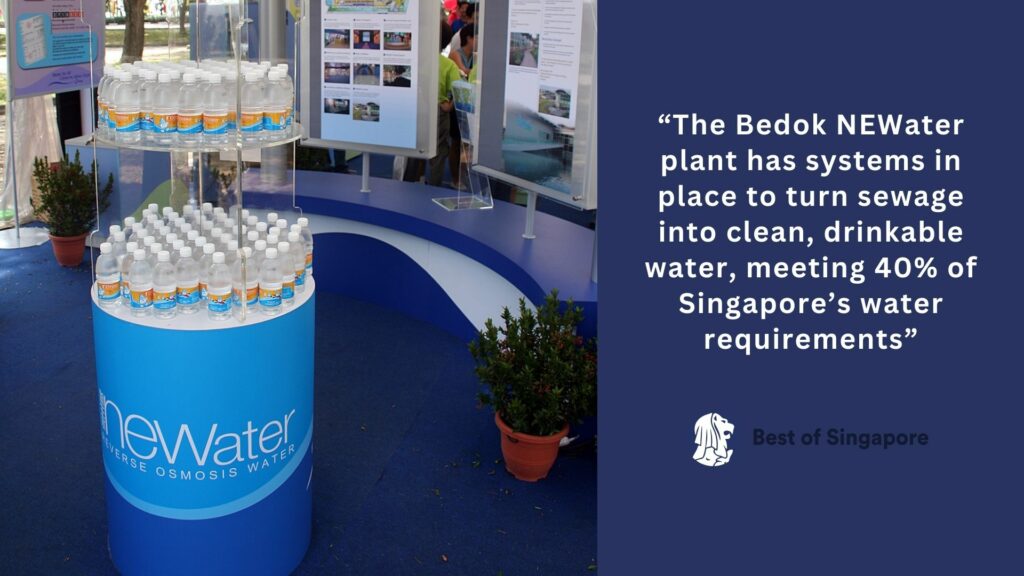
Air and Water Quality in Singapore
Pollution Levels in Singapore
Singapore has consistently maintained low pollution levels and high air and water quality standards. The National Environment Agency (NEA) routinely monitors and publishes the state of Singapore’s air and water quality. As of September 2021, the NEA showcased trends and analyses that have contributed to Singapore’s reputation as a clean and environmentally friendly country.
Air Quality in Singapore
Air quality in Singapore has consistently met international standards due to efficient management of pollution from industries and transportation. The city-state aims to keep a close watch on pollution levels by leveraging technology and implementing strict regulations on emission standards. Singapore has seen improvements in its air quality over the years due to its initiatives in reducing pollution.
In relation to other major cities worldwide, Singapore has comparatively lower air pollution levels. While some seasonal factors like the Indonesian forest fires affect the air quality temporarily, the government response and mitigation measures are quick and effective, ensuring minimal disruption to the daily lives of its residents.
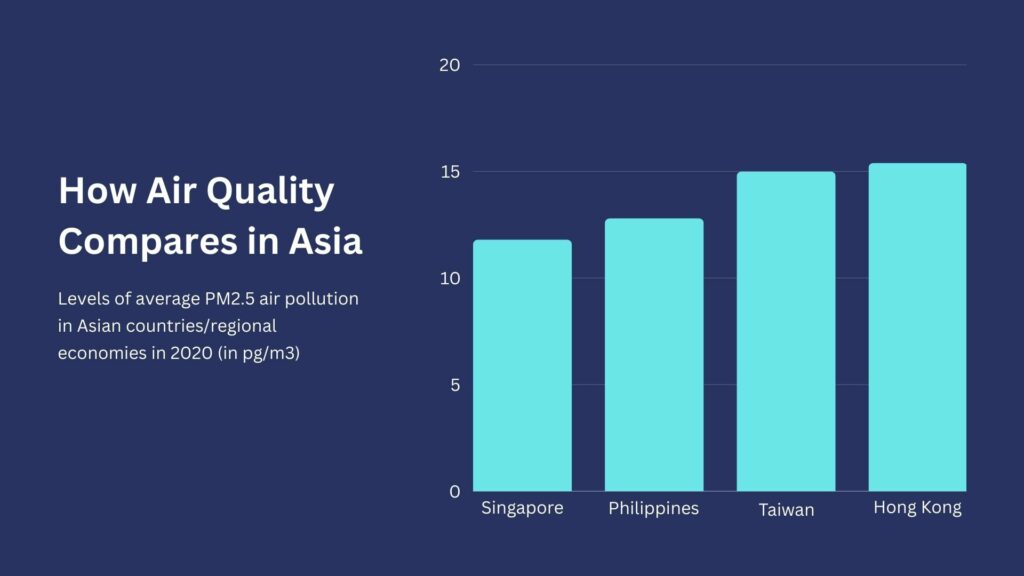
Singapore’s Clean Water
Singapore’s commitment to clean water is evident through its systematic management and efficient treatment of water resources. The city-state’s efforts to preserve the water quality include the implementation of stringent pollution controls and the use of advanced filtration technologies for both drinking water and wastewater treatment processes.
The country continues to develop innovative water management solutions, such as the NEWater system, which directly treats used water through a multiple-barrier purification process. This allows Singapore to maintain a sustainable supply of clean water for its residents while promoting environmental responsibility.
Singapore’s dedication to maintaining high standards of air and water quality exemplifies its strong commitment to environmental care and cleanliness. Both the government and its citizens actively strive to ensure a clean and healthy environment for present and future generations.
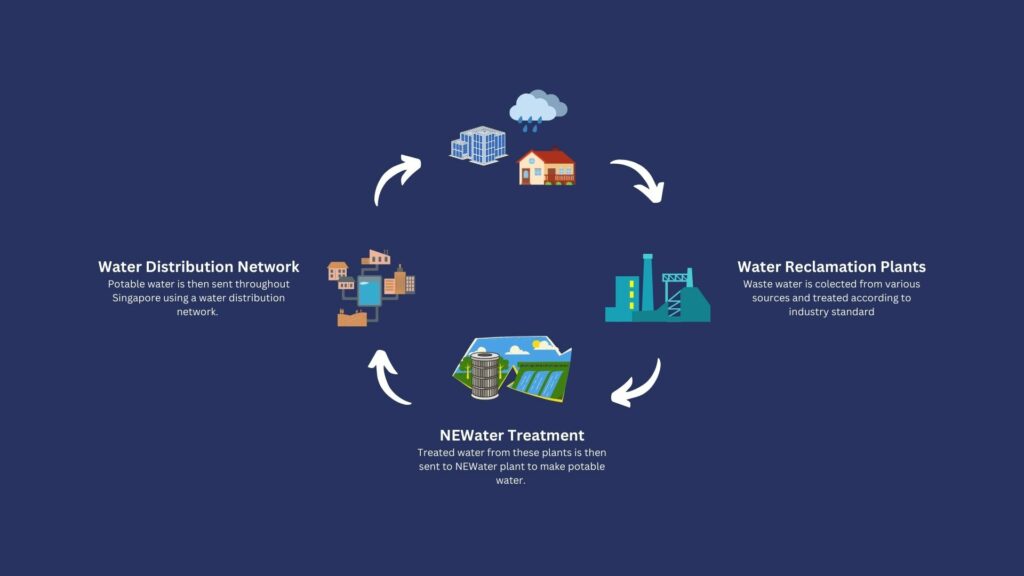
The Impact of Laws and Regulations on Cleanliness in Singapore
Singapore Littering Laws
Singapore has stringent littering laws in place to maintain its reputation as one of the cleanest countries in the world. The Environmental Public Health (Public Cleansing) Regulations prohibit individuals from obstructing streets or drains by disposing of waste in public areas. Violators of these laws can face significant fines and penalties, demonstrating the seriousness with which Singapore approaches cleanliness and public hygiene.
Cleanliness Campaigns in Singapore
In addition to strict laws, Singapore has also launched several cleanliness campaigns to encourage citizens to take responsibility for their environment. These campaigns play a vital role in promoting a culture of cleanliness and fostering a sense of pride in maintaining a clean city. Some notable initiatives include the “Keep Singapore Clean” campaign and public education programmes aimed at raising awareness on the importance of cleanliness and maintaining a healthy environment.
Together with robust legislation and cleanliness campaigns, Singapore’s commitment to upholding high standards of public hygiene has resulted in the nation being recognised for its clean streets and green urban landscape, with 62 per cent of respondents in a Time Out Index survey voting it as the world’s cleanest and greenest city.
Government efforts and the collaborative responsibility of its citizens have played a significant role in positioning Singapore at the forefront of clean and sustainable urban living.
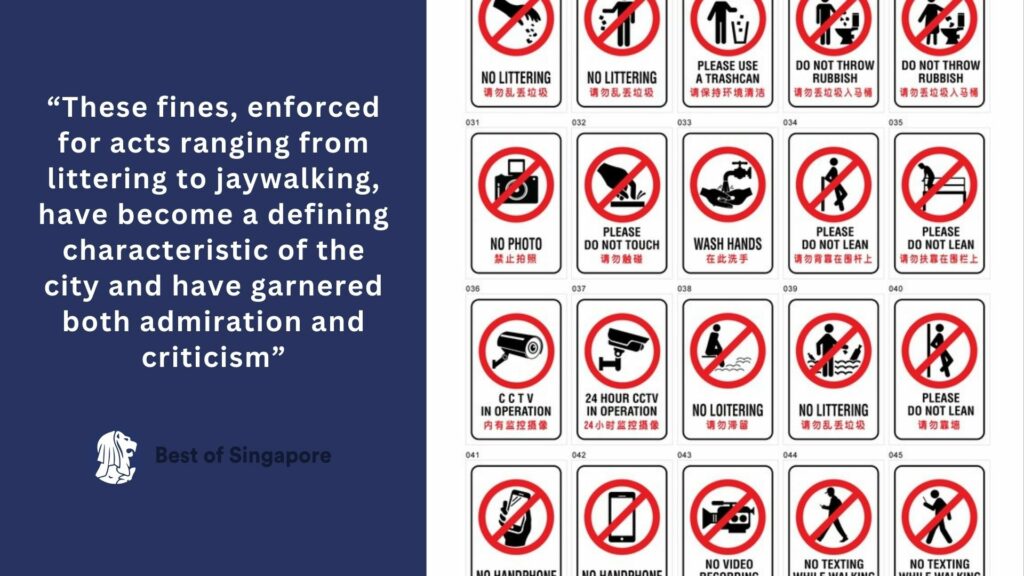
Environmental Achievements and Recognition of Singapore
Clean City Awards
Singapore is highly recognized for its efforts in maintaining cleanliness and promoting a green environment. The city has received numerous clean city awards, showcasing its commitment to environmental stewardship. One notable recognition is being voted the cleanest and greenest city in the world in a Time Out survey in 2021. This award demonstrates the city’s dedication to keeping its environment clean, and it is a benchmark against which other cities aspire to achieve. It also reflects the relentless pursuit of Singapore in promoting a green and clean living environment for its citizens and visitors.
Singapore’s Environmental Achievements
In addition to clean city awards, Singapore has accomplished numerous environmental achievements that further demonstrate its commitment to the environment. Among these achievements is the Singapore Environmental Achievement Awards (SEAA), an initiative that acknowledges the environmental efforts of local organisations. The SEAA has helped create a culture of environmental excellence in Singapore and has inspired other organisations to adopt sustainable practices.
Another notable environmental milestone is the establishment of the SG Clean Certification. Managed by the National Environment Agency (NEA), the certification is designed to encourage businesses in Singapore to maintain high standards of environmental and public hygiene. Obtaining the SG Clean Quality Mark not only signifies a business’s commitment to cleanliness but can also qualify them for certain government grants or initiatives.
Singapore also consistently ranks among the cleanest countries in the world in the Environmental Performance Index (EPI). The country’s impressive EPI scores reflect its focus on environmental health, air quality, sanitation, and drinking water, among other metrics. Singapore’s commitment to the environment has led to its reputation as a clean and green urban oasis, setting an example for other cities around the world.
Public Transport and Green Spaces in Singapore
Clean Public Transport in Singapore
Singapore boasts a highly efficient and clean public transport system, which includes buses, Mass Rapid Transit (MRT), and Light Rail Transit (LRT). The city-state has adopted a 45-20-10 approach to mobility, ensuring that most residents can complete peak-period journeys in 45 minutes and reach the nearest neighbourhood centre within 20 minutes. This comprehensive transport network significantly contributes to Singapore’s overall cleanliness by reducing private vehicle usage and their associated emissions.
As part of the Singapore Green Plan 2030, the government envisions that all vehicles will run on cleaner-energy by 2040. This initiative will further reinforce Singapore’s status as a clean and green nation, prioritising environmental sustainability while allowing its transport sector to continue expanding.
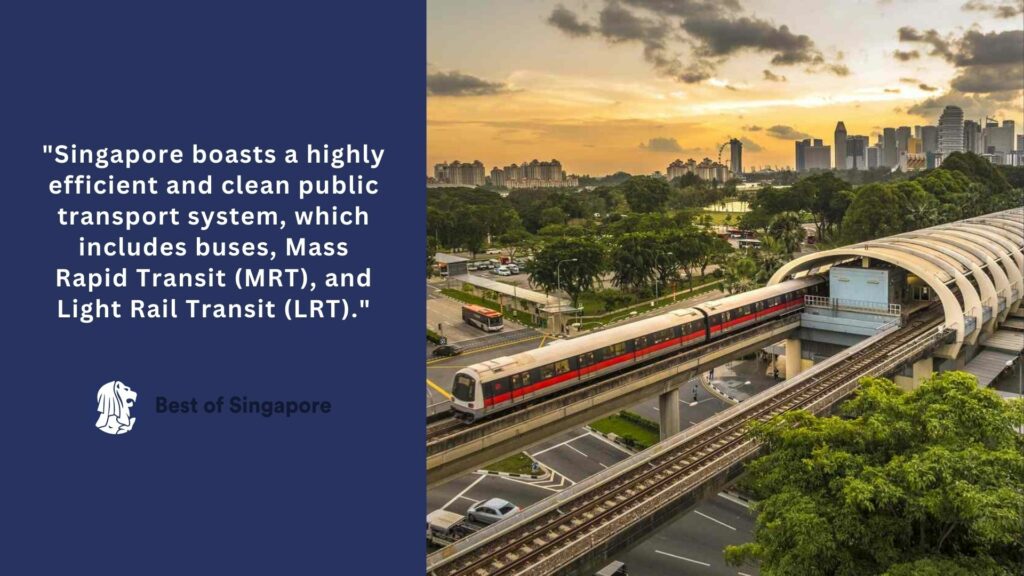
Green Spaces in Singapore
Singapore is often referred to as the Garden City and is home to an abundance of lush green spaces. With numerous parks, gardens, and nature reserves, the city’s dedication to preserving its natural surroundings is evident.
One much-lauded example is the Gardens by the Bay, a massive horticultural sanctuary and major tourist attraction comprised of a variety of climate-controlled biodomes and towering Supertrees. This astonishing green space stretches across 101 hectares and serves as a testament to Singapore’s commitment to maintaining biodiversity and sustainable living in an urban setting.
Additionally, the Singapore Botanic Gardens, a UNESCO World Heritage site, spans over 160 years of history, demonstrating the city’s dedication to green initiatives and conservation. Here, visitors can admire an array of plant species and enjoy vast expanses of well-maintained gardens.
By integrating clean public transport and widespread green spaces, Singapore has positioned itself as a leader in environmental responsibility and urban sustainability. This symbiotic approach to urban design and infrastructure is an essential factor in Singapore’s reputation as one of the cleanest countries in the world.

Environmental Education in Singapore
In recent years, Singapore has made significant strides in promoting environmental education among its citizens. This effort stems from the recognition that preserving its status as one of the cleanest and greenest cities in the world requires an educated and environmentally-conscious population.
One of the primary approaches to fostering a culture of environmental awareness in Singapore has been the development of a cross-curricular environmental education programme in schools. This initiative exposes students to concepts and practices which promote environmental sustainability, through engaging and interactive learning experiences. By incorporating environmental education into various subjects, students learn the interconnectedness between human activities and the well-being of the planet, making informed decisions and developing an appreciation for their shared responsibility in preserving the environment.
Another significant development has been the incorporation of climate change education into the curriculum, spanning kindergarten to high school levels. This ensures that students acquire an understanding of the impact and implications of climate change, equipping them with the knowledge and skills to mitigate environmental challenges, and foster resilience in the face of extreme weather events and other climate-induced phenomena.
Furthermore, both government agencies and educational institutions have collaborated to create comprehensive resources for environmental education. These include guidelines, training materials, and support services that help teachers develop and implement effective environmental education programmes in their classrooms. As a result, educators are equipped with the necessary resources and tools to ensure a thorough and engaging learning experience that nurtures environmentally-aware citizens.
Singapore’s commitment to strategically integrating environmental education into curricula and providing the necessary resources for its implementation has played a crucial role in promoting a culture of environmental consciousness. By ensuring that future generations possess the knowledge and skills to respond to environmental challenges, Singapore maintains its position as a leading environmentally sustainable city.
You may also like…
Why Is Chewing Gum Banned In Singapore?
Can I Vape in Singapore? Your Guide to Vaping Laws and Regulations
Is Singapore The Cleanest Country In The World? – Frequently Asked Questions
Which country ranks the highest in cleanliness?
Denmark currently ranks as the highest in cleanliness with an environmental performance score of 82.5, making it the cleanest country in the world. Denmark has consistently made efforts to maintain and improve its environmental policies.
How does Singapore’s cleanliness compare to other cities?
Singapore is widely recognized for its cleanliness and has been voted the cleanest and greenest city in the world by 62% of respondents in a Time Out Index survey. The country’s strict rules and regulations regarding littering, combined with frequent cleaning efforts, contribute to its exceptionally clean environment compared to other cities around the world.
What are the top cleanest cities in the world?
There is no definitive list as rankings can vary depending on the source and criteria used. However, based on factors like environmental performance, sustainability, and pollution control, some of the top cleanest cities include Singapore, Copenhagen (Denmark), and Zurich (Switzerland).
What factors contribute to Singapore’s reputation for cleanliness?
Singapore’s reputation for cleanliness can be attributed to several factors, including strict laws and penalties for littering, regular cleaning schedules and efforts across the city, and the promotion of good hygiene practices among the public. Additionally, the government’s commitment to environmental policies and constant urban development contributes to the city’s overall cleanliness.
How does the Keep Singapore Clean campaign impact the city?
The Keep Singapore Clean campaign empowers citizens to take ownership of their environment. It encourages active participation and engagement through regular cleaning exercises and educational initiatives, emphasizing the importance of individual actions in maintaining the city’s cleanliness and fostering a strong sense of civic pride among residents. This campaign has been highly successful in keeping Singapore clean over the years.
Are there any countries considered cleaner than Singapore?
While Singapore is renowned for its cleanliness on a city level, it is not ranked as the cleanest country in the world. Based on the environmental performance index, which takes into account various environmental factors such as waste management and pollution control, Denmark holds the top spot as the cleanest country globally, followed by Luxembourg and Switzerland. Singapore, however, remains a shining example of cleanliness when it comes to urban environments.
